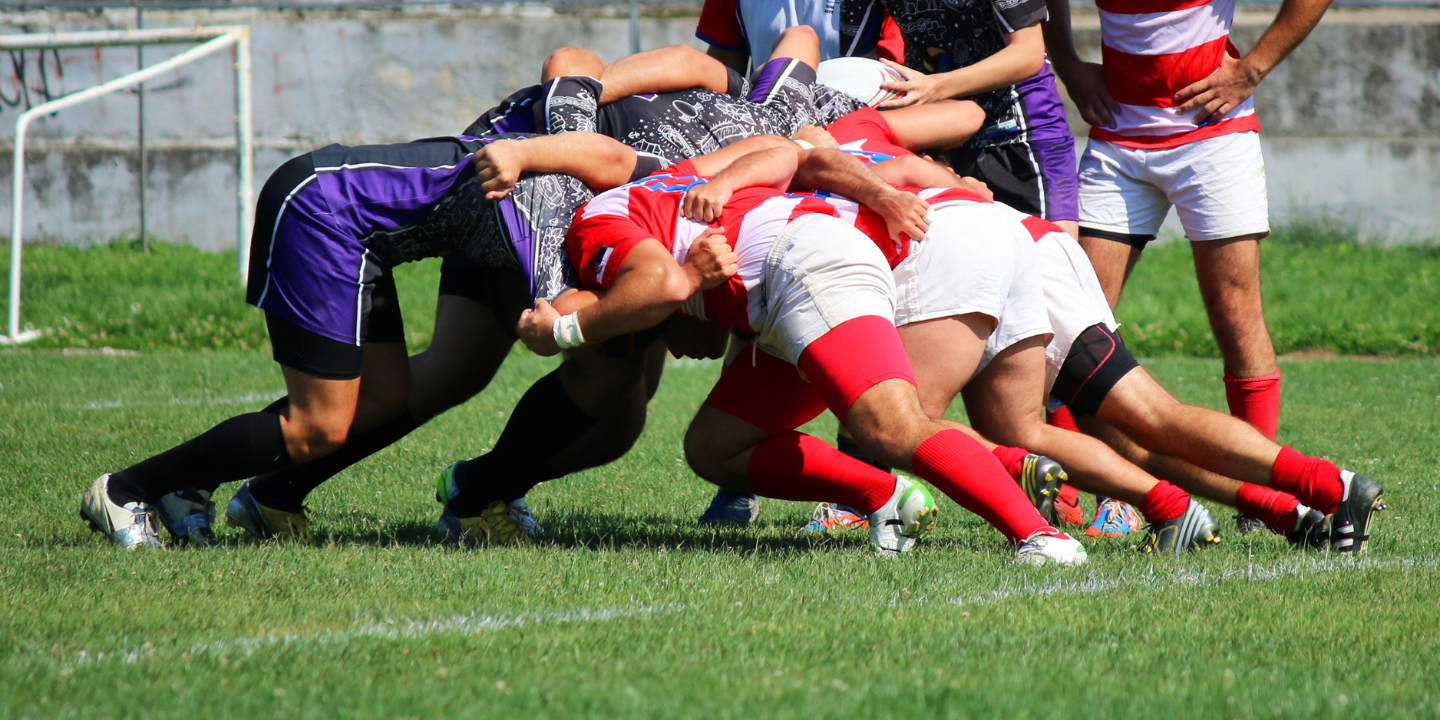As leaders we want to lead high-performing teams and as team members, we want to be working as part of them.
Working in a great team is an absolute pleasure and has an enormous impact on how we feel about our work and the company we are employed by.
Of course, the opposite is also true and working in a dysfunctional team is deeply negative and has a huge impact on performance and can be enough to encourage individuals to leave and pursue other options.
In this insight article, Jane Braithwaite, Designated PA’s MD, looks at how to create and lead high-performing teams, and how individuals can contribute to the success of their team.
Let’s start by examining how great sporting teams create high performing teams.
Anybody who is loyal to a particular sports team or club knows the highs and lows associated with performance management.
When a team is failing, often the manager gets put under enormous pressure and the result is a swift departure.
However, let’s look at success stories, starting with rugby.
England’s Rugby Six Nations team performance strategy
If we take the Six Nations championship as an example, each team that takes part gets their performance analysed by professionals, the media, and all of us at home watching.
Each team has its own characteristics. Wales being admired for their grit and determination whereas England was heavily criticised for a lack of discipline.
Back in 2003, when the England rugby team won the World Cup, the team was led by Sir Clive Woodward who helpfully shared his winning strategy.
Woodward said that “great teams are made up of great individuals” and he focused on creating a winning culture and claimed a 4 point criteria for creating “champion individuals”.
4 key criteria for creating a winning team by Sir Clive Woodward:
- Talent – individual talent
- Teachability – “It’s often the most experienced person who is unteachable”
- Pressure – the warrior spirit
- Will – commitment to win
In his 2003 World Cup team, Woodward describes having 5 champions and 10 warriors in the team, and he highlights the importance of coaching on two levels:
- Coaching for the individuals
- Coaching for the team together
Woodward’s approach was clearly successful.

How team sporting strategy is used in business
British cycling and the business world.
A team strategy brought to my attention is the “aggregation of marginal or incremental gains”.
This strategy works on the premise that if we can improve every aspect of a team’s performance by 1%, the overall result will be a significant improvement.
This approach was highly publicised following the success of the British cycling team in 2008 and 2012.
Even though the achievements of the British cycling team were being questioned, the strategy is popular in the business environment.
Gold medal-winning British Olympic rowing team inspires business team performance.
One of my favourite sporting strategies, embraced by business, is described in the book ‘Will it make the boat go faster’, by Ben Hunt-Davis and Harriet Beveridge.
In this book, the authors document how Hunt-Davis’s rowing team adopted this approach and went on to win the gold medal at the Sydney 2000 Olympics.
In business we might use this strategy to achieve a project within tight timescales or to focus on a particular aspect of our service for example, “does it make the customer experience better?” or “does it make the service better”.
It’s a great way to ensure focus and gain momentum to achieve short and medium-term clear goals and objectives.
I like this as it is simple and can be used to immediately ensure everyone on the team is on the same page.
These examples of sporting successes in team performance provide plenty of interesting learning opportunities that can be adapted for business.
How you can apply sporting team performance strategies into your business.
We may pick up ideas from numerous sources as we create our own leadership and team management strategies.
Each of us can use best practice to influence our leadership style but ultimately our approach will be unique to us and our personalities.
As we build our own style it is important to break down the aspects of teamwork and ensure we consider each aspect to build a good all-encompassing approach.
How to apply former England Rugby coach, Sir Clive Woodward’s 4 elements of team success in a business setting.
1. Talent
To create the greatest team, we want to have the greatest leader and the most talented individuals.
This might be realistic for a premiership football club but most of us are restrained by factors such as money, availability of talent, geography etc.
In the real world what we really need to aim for is the most talented individuals available to us and ensuing that each individual deliver to the best of their ability.

- Personality types in teams
A team also requires a group of people with differing but complimentary talents. All of these individuals must find a way to work together to the benefit of the business and customer.
As well as having differing skills, a team will also be home to lots of different personality types and character types.
Some people are eternal optimists, always anticipating the best possible outcome and seem oblivious to any potential barriers. Others will be the complete opposite preferring to plan for the worst-case scenario so that all bases are covered and prepared for.
When two people of opposite types such as these come together, they can either create a perfectly balanced partnership or they can find it impossible to work together and hit a brick wall.
- Ideas person vs detailed planner
Another potential conflict can arise when one person is an ideas person, and another is a detailed planner.
The detailed plan that is essential to one person can be viewed as a barrier to progress and a time-wasting activity to the person who has the great idea and wants to get on with delivering it.
Again, a balance of these two styles is ideal but how do we bring different personalities such as these together to work collaboratively.
- Leadership and self-awareness
Leaders need to develop self-awareness and understand their natural style.
We suggest using psychometric profiling tools such as Myers Briggs and C-me profiling and again these tools are equally relevant to individuals working together as a part of a collaboration.
Once an individual understands their own style and also the natural style of others on their team, they can learn effective communication, working with one another to achieve success.
Understanding team dynamics and how different personalities intract is crucial for effective collaboration and performance.
The “ideas person” learns that by listening to the detailed oriented individual, their idea has a far greater chance of success as a result of the detailed plan that will be developed ensuring that every outcome is prepared for.

2. Teachability
An ability and willingness to learn is an important attribute for all team members.
Too often we associate this with more junior team members but actually it is relevant to even the most senior members of a team and Woodward is quite right when he states, “It’s often the most experienced person who is unteachable”.
To work well as a team, every individual needs to be prepared to adapt their ways of working for the good of the team.
The well-known management phrase “It’s my way or the highway” might feel powerful but what if there is a better way?
3. Pressure
When Woodward says pressure, what he really means is the ability to perform under pressure which is essential for maintaining productivity and efficiency.
He believes the only way to ensure an individual and therefore the team is able to succeed under pressure is to practice by exposing the team to pressure regularly.
He uses role play requiring the team to work through every eventuality to ensure they know exactly what to do in each situation.

I would also argue that all teams must think about how to recover from being under pressure and build resilience.
It is clearly not possible for any individual or team to perform under constant pressure and we need to build in mechanisms for recognising long periods of extreme pressure and have plans in place to relieve the pressure and allow recovery to take place.
This may involve:
- adjusting holiday allowance
- time off in lieu
- activities within the working day to allow for recuperation
- creating a culture of open communication
- creating a culture of feedback within the team
All these can help in addressing pressure and fostering resilience when built in to ways of working.

4. Will
A team needs to be driven by an agreed goal or objective and to share a joint motivation to succeed and achieve the goal.
This is why the strategy of “Will it make the boat go faster” is so effective as it aligns the whole team to one clear, simple goal.
A team that has one or more members who doubt the goal is achievable will have a draining impact on the team’s morale and will reduce each person’s motivation to succeed.
Establishing clear roles and responsibilities within the team fosters accountability and ensures that each member understands their contributions towards achieving the shared objectives.
Key takeaway
It is said that “teamwork makes the dream work” and most of agree would wholeheartedly, but achieving the dream requires an investment of effort on a consistent basis.
The most talented individuals might be individually amazing but unless they can work together as a team their talents can be wasted.
The coming together of individuals with differing skill sets and personalities, working together effectively create an approach that brings balance that one individual could not achieve working alone is the ultimate goal.
And most importantly, humans are tribal and evolved working together in teams, intrinsically knowing it makes us more effective and ultimately life more enjoyable.
